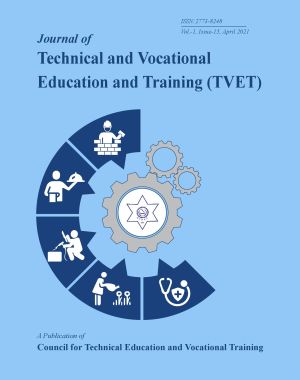Constitutional Reform and its Impact on TVET Governance in Nepal
DOI:
https://doi.org/10.3126/tvet.v1i15.45166Keywords:
TVET, Governance, Federalisation, ConstitutionAbstract
This paper analyses the challenges of the constitutional reform in Nepal and its impact on the governance of technical and vocational education and training (TVET). Thereby, the paper suggests five crucial recommendations. First, establish an Inter-Governmental TVET Council/Coordination committee, a high-level body with representatives of all three government levels. Second, describe the key TVET processes in a Master Plan that allocates tasks and processes to the appropriate level and supports a consistent federalisation process. Third, the high-level committee must address the remaining unclear normative issues in a TVET Policy for 2030 with goals and a vision for the sector. This should include allocating responsibilities to formal and non-formal education, defining what Nepal means by "good governance", defining the TVET programme approach, allocating detailed tasks to all three government levels and defining specific objectives for the TVET sector. Fourth, develop a TVET Act as quickly as possible. This is particularly important because the seven provinces depend on a national TVET legal framework to develop their own laws. Fifth, conduct a comprehensive TVET financial flows analysis to reconcile TVET funding sources and expenditures.
Downloads
Downloads
Published
How to Cite
Issue
Section
License
© CTEVT All rights reserved
CC BY-NC This license enables reusers to distribute, remix, adapt, and build upon the material in any medium or format for noncommercial purposes only, and only so long as attribution is given to the creator.




